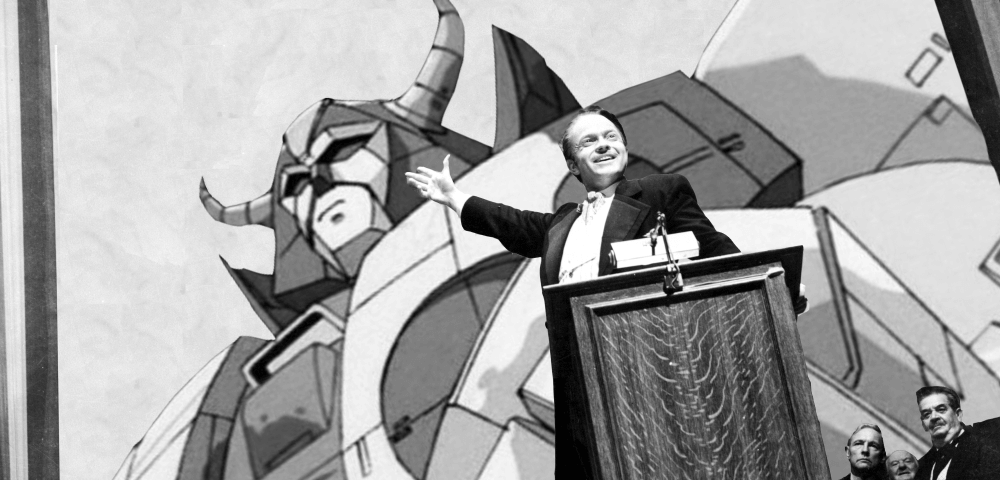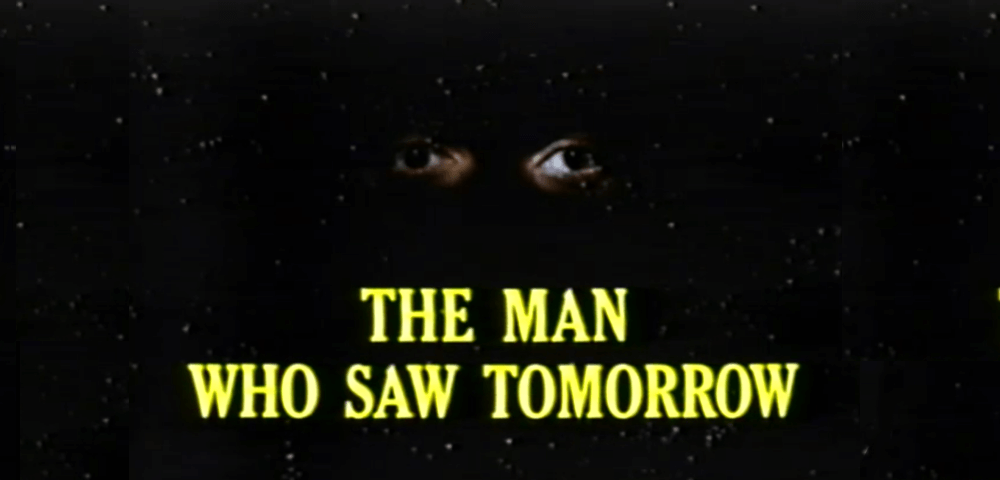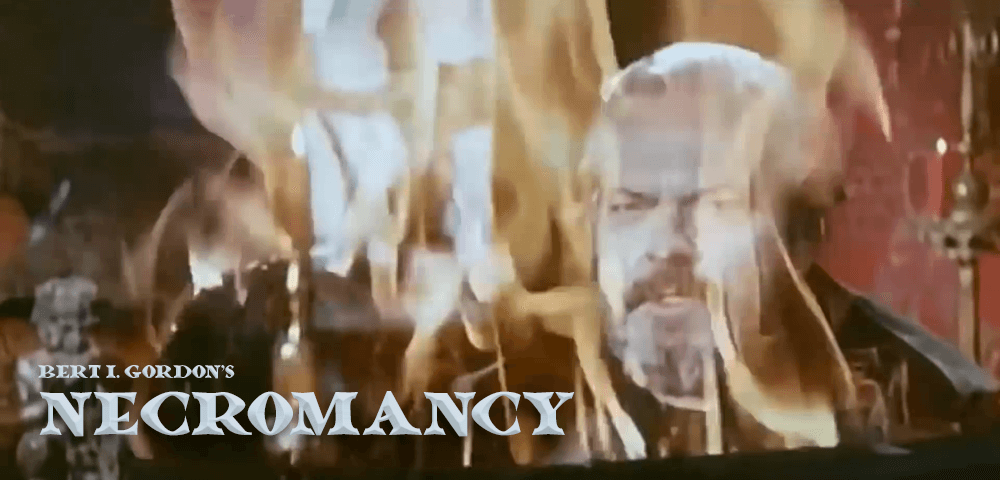“I’ve wasted the greater part of my life looking for money and trying to get along… trying to make my work from this terribly expensive paintbox which is a movie. I’ve spent too much energy on things that have nothing to do with a movie. It’s about two percent moviemaking and ninety-eight percent hustling. It’s no way to spend a life.”
“For a time I considered sparing your wretched little planet, Cybertron. But now… You shall witness… Its DISMEMBERMENT!”
Orson Welles: “The Boy Wonder” turned enfant terrible of Hollywood. Twice named the greatest director of all time in separate polls conducted by the British Film Institute, and the filmmaker who cinephiles around the world believe to be, if not one the greatest, undoubtedly one of the most consequential of all time. Welles passed away in 1985 at the age of 70, a mere five days after having completed his final performance: The voice of Unicron, the gargantuan planet-eating menace from the 1986 animated Transformers movie. A regrettably undignified end to the career of a man who once revolutionized the film industry and our concept of cinematic auteurship with his landmark debut, CITIZEN KANE.
Despite KANE’s recognition as a groundbreaking achievement, Welles spent most of his career unable to fund projects of his own artistic control, instead finding himself embroiled in constant battles with studios and producers over the budget, tone, casting, and length of his films. By the 1970s, Welles had turned to self-financing his work, choosing to lease out his famously mercurial, larger-than-life personality to any number of talk shows, commercials, television shows, voice-overs, and cheapie productions willing to offer the money needed to keep his productions afloat. Perhaps jaded by his Sisyphean tenure in Hollywood, Welles eventually grew ambivalent about his legacy in the film industry, lamenting the amount of time spent having to finance his work as opposed to actually working, and going so far as to refer to his time as a filmmaker as “about 2% moviemaking and 98% hustling”.
Thankfully, that 2% has lived on through continued repertory screenings, restorations, and even the long-belated completion of Welles’ final feature, THE OTHER SIDE OF THE WIND, in 2018. But we here at Spectacle believe that it’s important to acknowledge not just the man’s completed films, but the painstaking efforts it took for him to get them to that point— The endless parade of B-movie villains, documentary narrators, cameo appearances, and thankless bit parts that collectively comprise his “hustle”. In that spirit, Spectacle Theater is excited to present this series featuring some of our favorite selections from that 98%.
THE MAN WHO SAW TOMORROW
dir. Robert Guenette, 1981
USA. 88 min.
In English.
SATURDAY, APRIL 1 – MIDNIGHT
FRIDAY, APRIL 14 – MIDNIGHT
THURSDAY, APRIL 27 – 10 PM
In the early 1980s, before the era of Ancient Aliens and Beyond Belief, Orson Welles hosted this HBO “documentary” special about the life of Michel de Nostradame— aka Nostradamus— the 16th-century French apothecary and reputed seer whose “prophecies” “many” “experts” portend to have come true. Whether or not Nostradamus’ hundreds of vaguely provocative four-line poems were truly prophetic of future events (they weren’t) is still up for debate (it isn’t), but one thing he couldn’t predict is that this cable TV oddity would live a healthy second life on the 90s VHS market.
Much of the film’s lasting popularity has to do with Welles, who’s star power greatly outshines the material. Welles truly makes a meal out of his hosting duties, filling his oak-paneled library with a thick haze of cigar smoke as he struts around in an all-black ruffled suit. He alternates between skepticism and suggestion with aplomb, delivering lines like, “Was it coincidence… Or prophecy?”; ”Was he a QUACK… Or was he a true PROPHET?” with such unwarranted bravado that one wonders if he’s actually starting to enjoy himself. This is, after all, the same person who gave us F FOR FAKE, whose influence is felt in Robert Guenette’s dramatizations of Nostradamus’ predictions.
NECROMANCY
dir. Bert I. Gordon, 1972
USA. 83 min.
In English.
MONDAY, APRIL 3 – 10 PM
TUESDAY, APRIL 11 – 10 PM
FRIDAY, APRIL 21 – MIDNIGHT
SATURDAY, APRIL 29 – 10 PM
From Spectacle favorite Bert I. Gordon (PICTURE MOMMY DEAD) comes this occult thriller about bringing life to the dead and death to the living. Pamela Franklin (THE LEGEND OF HELL HOUSE) and Michael Ontkean (TWIN PEAK’s Sheriff Truman) star as Lori and Frank, a married couple who relocate to a northern California town following a recent tragedy. Lori is unnerved when she begins to have bizarre visions upon their arrival, and her suspicions only deepen once they meet Frank’s new boss, the mysterious Mr. Cato (Orson Welles), who appears to maintain an outsized influence among the locals.
Filming took place in 1970, shortly after Welles’ return to Hollywood following the collapse of his decades-in-the-works DON QUIXOTE project, and according to Josh Karp’s The Making of The Other Side of the Wind, was one of the first projects that Welles openly acknowledged he had taken mainly for the money. Thankfully for him, there wasn’t much effort required on his part, what with most of his scenes limited to the same few interiors and Mr. Cato’s uncanny ability to communicate entire monologues via fireplace. Yet he still excels in the role, giving off an otherworldly vibe as he coldly delivers lines like, “You’ll forgive me if I sometimes lose myself in my enthusiasm”.



